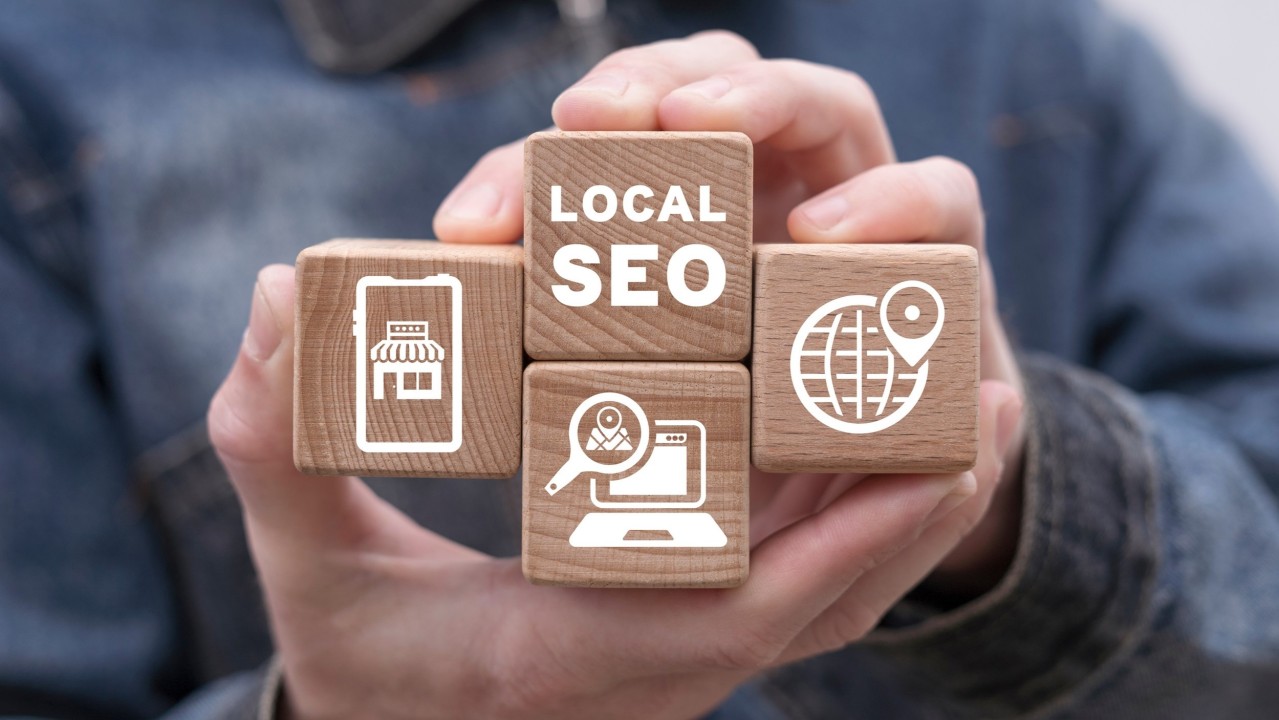News
Future-Proofing SEO: How Agencies Use AI Tools for Keyword Research and Analysis
With AI-driven tools now playing a pivotal role, agencies are better equipped to navigate the complexities of keyword research and analysis, enabling brands to remain competitive and relevant.
Leveraging AI for SEO is not merely an advantage; it’s becoming a necessity for future-proofing digital strategies in the face of shifting search behaviours, evolving algorithms, and increasing competition.
This article explores how agencies harness the power of AI in keyword research and analysis, shedding light on how AI tools identify high-impact, low-competition keywords that align with user search intent. By utilising AI, agencies can fine-tune their strategies to deliver more precise, effective, and adaptive SEO results.
The Need for AI in SEO
Search engines are smarter than ever. Algorithms now consider user intent, context, and even sentiment to determine search results, making traditional keyword research methods insufficient. The rise of voice search, natural language processing (NLP), and predictive search capabilities demands a more dynamic approach to SEO.
For agencies, the challenge lies in keeping pace with the increasing complexity of search engines’ ranking algorithms while delivering accurate, insightful keyword strategies. AI’s role in this equation is transformative. By automating and enhancing keyword research, AI allows agencies to achieve three core objectives:
- Understand user intent on a deeper level: AI can interpret search intent more effectively by analysing large data sets, making keyword targeting more accurate.
- Adapt to real-time changes: Unlike manual research methods, AI tools can update keyword data in real time, ensuring that agencies can respond quickly to shifts in search trends.
- Deliver competitive analysis: AI allows for robust competitor analysis by identifying keyword gaps, market opportunities, and the competitive landscape for any search query.
How Agencies Use AI for Advanced Keyword Research
At the core of AI-powered keyword research is the ability to process and analyse vast amounts of data with speed and precision. Agencies use AI-driven tools to identify opportunities that may be missed by traditional methods. Here are the main ways agencies leverage AI for advanced keyword research:
1. Uncovering High-Impact, Low-Competition Keywords
High-competition keywords often dominate search results, making it challenging for brands to rank without substantial resources. AI tools help agencies identify high-impact, low-competition keywords—terms that attract significant search volume but with less competition. By analysing historical data, user patterns, and ranking trends, AI can suggest keywords that have a higher potential for visibility with less effort.
For example, tools like SEMrush, Ahrefs, and Surfer SEO use machine learning algorithms to highlight long-tail keywords that are often less competitive but highly relevant. Agencies use this data to build content strategies around these keywords, ensuring clients can achieve a higher search ranking without direct competition with industry giants.
2. Analysing User Intent and Search Patterns
Understanding user intent—the motivation behind a search query—is essential for effective keyword targeting. AI tools employ natural language processing to analyse search queries and categorise them by intent. This means agencies can tailor content to target keywords that align with specific user intents, such as informational, transactional, or navigational searches.
For instance, tools like BrightEdge and MarketMuse are proficient in categorising keywords by intent. By examining search patterns, agencies can determine if users are seeking information, looking to make a purchase, or aiming to navigate to a specific site. This approach ensures that content resonates with the searcher’s needs, ultimately leading to better user engagement and higher conversion rates.
3. Identifying Trending Topics and Seasonal Keywords
AI tools excel at detecting emerging trends and seasonal shifts in search behaviour. By analysing massive volumes of data, these tools can identify spikes in interest, allowing agencies to create timely and relevant content. For example, Google Trends and tools like BuzzSumo help agencies discover trending topics that are gaining traction within specific niches or demographics.
For brands that rely on seasonal campaigns, AI-driven tools provide insights into the keywords most likely to drive traffic during specific periods. This allows agencies to plan campaigns around peak interest times, capturing audiences when they are most engaged. Seasonal keyword research also benefits local SEO, helping businesses optimise content based on regional trends or events.
Tools and Techniques for AI-Powered Keyword Analysis
With a range of AI-driven tools available, agencies can customise their keyword research approach to align with clients’ unique goals and industry dynamics. Here’s a closer look at some popular AI-powered tools and the specific benefits they offer in keyword analysis:
1. Deep Learning for Keyword Grouping
Advanced tools like Surfer SEO and Frase use machine learning models to analyse keywords and group them based on similarity, intent, and relevance. This keyword clustering approach is invaluable for agencies that need to organise keywords into cohesive clusters, making it easier to target related terms across multiple pieces of content.
Keyword clustering not only enhances content relevance but also improves overall page authority. By grouping related keywords, agencies ensure that each page addresses a comprehensive set of terms within a specific theme, which can lead to higher rankings and improved search visibility.
2. Sentiment Analysis to Refine Keyword Choices
Sentiment analysis, a subset of NLP, helps agencies gauge the emotional tone of keywords and phrases. Tools like Lexalytics and MonkeyLearn assess whether a keyword has a positive, negative, or neutral sentiment, allowing agencies to align keyword choices with brand messaging and audience sentiment.
For instance, a travel agency may discover that terms associated with “relaxing holidays” have a positive sentiment among searchers, while phrases like “budget travel” may evoke mixed sentiments. This insight enables agencies to refine their keyword lists to ensure they resonate with the target audience’s emotional expectations, thus enhancing click-through rates and user engagement.
3. Predictive Analysis to Anticipate Keyword Trends
AI-driven tools with predictive capabilities, such as IBM Watson and BrightEdge, are at the forefront of future-proofing SEO. By analysing historical trends, user behaviours, and external factors (like economic shifts or global events), these tools can forecast which keywords are likely to become popular over time.
For agencies, predictive analysis is a game-changer in long-term SEO planning. By anticipating trends before they peak, agencies can prepare content strategies that capture early traffic and establish authority before competitors enter the space. This proactive approach is essential for brands that want to maintain relevance in fast-moving industries.
4. Competitor Analysis for Keyword Gaps
AI-powered competitor analysis tools, such as Ahrefs and SpyFu, allow agencies to identify keyword gaps between a client’s content and its competitors. By revealing keywords that competitors are ranking for but the client is not, agencies can build strategies to bridge those gaps and enhance visibility in critical areas.
In-depth competitor analysis also extends to identifying content opportunities, backlinks, and top-performing pages, giving agencies a comprehensive view of the competitive landscape. By using AI to find these keyword gaps, agencies can target underutilised search terms and improve a client’s competitive standing in search engine results.
AI for Content Optimisation and On-Page SEO
Keyword research is only part of the equation. Once the keywords are identified, AI continues to support the optimisation process, ensuring that the content created aligns with search engine guidelines and user expectations. Here are some AI-powered content optimisation practices agencies employ:
1. Optimising Content for Semantic Relevance
Modern search engines rely on semantic analysis to understand the meaning behind words and phrases, making keyword stuffing obsolete. Tools like MarketMuse and ClearScope use AI to analyse content for semantic relevance, suggesting related terms and concepts that enhance the overall meaning of the content.
By incorporating semantic keywords, agencies ensure that content covers a topic comprehensively. This not only improves the likelihood of ranking for primary keywords but also boosts visibility for a range of related search terms, improving the depth and breadth of content relevancy.
2. Content Gap Analysis and Enhancement
Using tools like Surfer SEO or Frase, agencies perform content gap analysis to identify areas where existing content falls short. AI algorithms compare current content to top-ranking pages, highlighting missing keywords, headings, or topic areas. This allows agencies to refine content for maximum relevance, improving both SEO performance and user satisfaction.
By continuously monitoring and updating content based on AI insights, agencies maintain optimised, high-ranking pages that reflect current search trends and user preferences.
3. Automated Content Suggestions
AI-driven tools like HubSpot’s SEO tool or INK Editor provide automated content suggestions to ensure optimal keyword density, readability, and engagement. By analysing keyword placement, sentence structure, and content flow, these tools help agencies craft content that is not only SEO-friendly but also engaging for readers.
Automated suggestions save time and improve the consistency of content output, making it easier for agencies to manage large-scale SEO campaigns without sacrificing quality.
Overcoming Challenges in AI-Powered Keyword Research
While AI is a powerful ally in keyword research, it’s not without challenges. Agencies must address concerns around data accuracy, privacy, and bias to maximise the potential of AI in SEO. Additionally, over-reliance on AI could lead to a loss of human intuition, particularly in areas requiring creativity and strategic thinking.
To overcome these challenges, agencies should adopt a balanced approach that combines AI insights with human expertise. By critically evaluating AI-generated suggestions and customising strategies based on nuanced understanding, agencies can achieve a more refined, effective SEO strategy.
In an era where search engines are increasingly sophisticated, AI-powered keyword research and analysis are vital for future-proofing SEO. By leveraging AI tools, agencies can identify high-impact keywords, understand user intent, anticipate trends, and perform robust competitor analysis—all of which contribute to more precise and adaptive SEO strategies.





The Ultimate Social Media Guide
With the ever-growing power of social media, we use the latest techniques, video, and animation software to craft eye-catching social media assets that make your brand pop. Our designers, wielding Adobe Creative tools, create distinctive animations and graphics to illuminate your brand story and highlight your products or services. Want a unique design? No problem – we also offer bespoke designs to match your brand aesthetic.